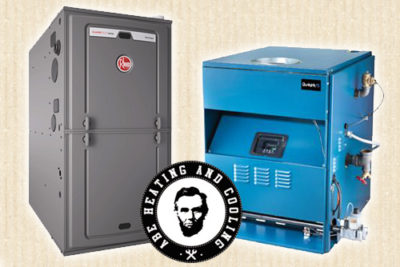“Abe's Heating and cooling were professional and on time. they helped me with two time sensitive projects and did excellent work. I know who I'll be calling if I should ever need an HVAC technician.”
Blog
 Furnaces and boilers both create heat through the process of combustion, using similar fuel sources (usually natural gas or oil). But this is where the similarities end.
Furnaces and boilers both create heat through the process of combustion, using similar fuel sources (usually natural gas or oil). But this is where the similarities end.
While furnaces heat air for blower dispersal through an expansive network of metal ducts, boilers heat water that is pumped through copper or PEX pipes to cast iron radiators, baseboard heaters or in-floor radiant heat systems. Furnaces operate from centralized locations, but hydronic heat systems (the correct name for closed-loop boiler-based systems) transfer their heat directly to every room where radiating outlets are installed.
Furnaces are used to heat homes far more frequently than boilers. But this doesn’t mean they have performance advantages. In fact, hydronic heat systems are highly efficient and offer numerous benefits that furnaces cannot match.
In comparison to furnaces, boilers have some clear advantages. They include:
Despite these advantages, boilers are not as widely used as furnaces because they are more expensive to purchase and install. The problem is that conventional HVAC systems generally include furnaces and air conditioners that share the same ductwork, while hydronic heat systems must be supplemented by a separate installation of air conditioner plus associated ductwork.
This would put boilers at a pricing disadvantage even if they cost the same as furnaces, but in fact they cost more—possibly as much as $1,000 to $2,000 more, depending on the quality of the boiler purchased.
So overall, the upfront costs of a boiler plus central air conditioner co-installation exceed the costs of a furnace/air conditioner co-installation by a decent amount, which discourages people from installing boilers in new homes or using them in existing ones to replace worn-out furnaces.
When choosing between a boiler or a furnace, you’ll have a lot to contemplate. If you contact us today ABE Heating and Cooling can give you the straight scoop on both technologies, which will help you make the wisest and most rewarding decision for your future.
We’ve sold and installed both boilers and furnaces throughout the Denver Metro area, and as our satisfied customers can attest, our work and our products are always of the highest quality.